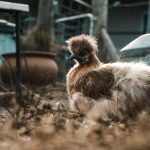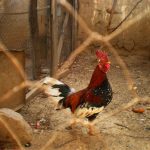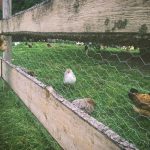Possums are nocturnal mammals, primarily active during nighttime hours. Their omnivorous diet includes fruits, vegetables, insects, small animals, and human refuse. These adaptable creatures possess excellent climbing skills, enabling them to easily navigate fences and trees in search of food.
Typically solitary, possums may share dens during winter for warmth. When threatened, possums exhibit distinctive defensive behaviors, including hissing, growling, and feigning death. While generally non-aggressive towards humans, they can become problematic when raiding chicken coops or scavenging in residential areas.
Understanding possum behavior is crucial for developing effective deterrent strategies to protect property and livestock. Possums demonstrate remarkable adaptability, thriving in diverse environments such as urban, suburban, and rural settings. This versatility contributes to their frequent encounters with humans, making them a common concern for homeowners and farmers.
Comprehensive knowledge of possum habits and behaviors is essential for implementing successful management techniques to minimize conflicts in areas where they may cause disturbances.
Table of Contents
- 1 Securing the Chicken Coop
- 2 Eliminating Food Sources
- 3 Implementing Motion-Activated Devices
- 4 Using Natural Repellents
- 5 Installing Predator-Proof Fencing
- 6 Seeking Professional Help
- 7 FAQs
- 7.1 What are possums and why are they a threat to chickens?
- 7.2 What are some effective ways to keep possums away from chickens?
- 7.3 Are there any natural deterrents that can be used to keep possums away from chickens?
- 7.4 What should I do if I spot a possum near my chicken coop?
- 7.5 Are there any legal considerations when dealing with possums?
Key Takeaways
- Possums are nocturnal and are attracted to chicken coops for food and shelter.
- Secure the chicken coop by repairing any holes or gaps, and using heavy-duty locks on doors and windows.
- Eliminate food sources by keeping the area around the coop clean and removing any fallen fruits or vegetables.
- Implement motion-activated devices such as lights or sprinklers to scare away possums.
- Use natural repellents like predator urine or ammonia-soaked rags to deter possums from the coop.
- Install predator-proof fencing with a dig-proof barrier to prevent possums from burrowing under the coop.
- Seek professional help if possum infestation persists, as they may require trapping and relocation by a licensed wildlife expert.
Securing the Chicken Coop
Building a Secure Coop
One of the primary steps in securing the coop is to ensure it is built with sturdy materials that cannot be easily broken into by possums or other predators. This may involve reinforcing the coop with heavy-duty wire mesh, locks, and latches to prevent possums from entering.
Eliminating Entry Points
Another vital aspect of securing the chicken coop is to eliminate any potential entry points that possums may use to gain access. This may involve sealing any gaps or holes in the coop with wire mesh or other materials to prevent possums from squeezing through. It is also essential to ensure the coop is kept clean and free of any food scraps or spilled feed that may attract possums.
Securing the Surrounding Area
In addition to securing the coop itself, it is also crucial to secure the surrounding area to prevent possums from gaining access. This may involve installing barriers such as fences or netting around the perimeter of the coop to prevent possums from climbing over or digging under to gain access. By taking these measures, homeowners and farmers can effectively secure their chicken coops and protect their chickens from possum predation.
Eliminating Food Sources

Possums are attracted to areas where they can find easy sources of food. By eliminating these food sources, homeowners and farmers can effectively deter possums from frequenting their properties. One way to eliminate food sources is to secure garbage cans with tight-fitting lids to prevent possums from rummaging through trash for food scraps.
It is also important to keep outdoor areas clean and free of any food scraps or spilled feed that may attract possums. This may involve regularly cleaning up any food debris around the chicken coop or other areas where possums may be attracted. By removing these food sources, homeowners and farmers can make their properties less appealing to possums and reduce the likelihood of them causing trouble.
Another important step in eliminating food sources is to secure any fruit trees or vegetable gardens that may attract possums. This may involve installing barriers such as netting or fences around these areas to prevent possums from accessing the fruits and vegetables. By taking these measures, homeowners and farmers can effectively reduce the likelihood of possums causing damage to their crops and other food sources.
Implementing Motion-Activated Devices
Motion-activated devices can be an effective way to deter possums from frequenting residential areas and causing trouble. These devices work by detecting motion and emitting a loud noise, flashing lights, or spraying water to scare away possums and other pests. By installing motion-activated devices around the chicken coop and other areas where possums may be a problem, homeowners and farmers can effectively deter them from causing damage.
One type of motion-activated device that is commonly used to deter possums is a motion-activated sprinkler system. These systems work by detecting motion and then spraying a burst of water to scare away possums and other pests. By installing these systems around the perimeter of the chicken coop and other areas where possums may be a problem, homeowners and farmers can effectively deter them from causing trouble.
Another type of motion-activated device that can be effective in deterring possums is a motion-activated sound emitter. These devices work by emitting a loud noise when motion is detected, which can scare away possums and other pests. By installing these devices around the property, homeowners and farmers can effectively deter possums from causing damage to their chicken coops and other areas where they may be a problem.
Using Natural Repellents
Natural repellents can be an effective way to deter possums from frequenting residential areas and causing trouble. There are several natural repellents that can be used to deter possums, including predator urine, ammonia-soaked rags, and garlic spray. By using these natural repellents around the chicken coop and other areas where possums may be a problem, homeowners and farmers can effectively deter them from causing damage.
One natural repellent that is commonly used to deter possums is predator urine. This repellent works by mimicking the scent of predators, which can scare away possums and other pests. By applying predator urine around the perimeter of the chicken coop and other areas where possums may be a problem, homeowners and farmers can effectively deter them from causing trouble.
Another natural repellent that can be effective in deterring possums is ammonia-soaked rags. These rags work by emitting a strong odor that can deter possums from frequenting residential areas. By placing these rags around the property, homeowners and farmers can effectively deter possums from causing damage to their chicken coops and other areas where they may be a problem.
Installing Predator-Proof Fencing

Effective Deterrent Against Possums
Installing predator-proof fencing around the chicken coop and other areas where possums may be a problem can be an effective way to deter them from causing damage. Predator-proof fencing is designed to prevent predators such as possums from gaining access to the chickens and their eggs. This type of fencing is typically made with heavy-duty wire mesh that is buried underground to prevent predators from digging under it.
Key Features of Predator-Proof Fencing
In addition to being buried underground, predator-proof fencing should also be tall enough to prevent possums from climbing over it. This may involve installing fencing that is at least 6 feet tall to effectively deter possums from gaining access to the chickens and their eggs. By installing predator-proof fencing around the property, homeowners and farmers can effectively protect their chickens from possum predation.
Maintenance is Key
It is also important to regularly inspect the predator-proof fencing for any signs of damage or wear and tear. This may involve repairing any holes or gaps in the fencing to prevent possums from gaining access. By maintaining the integrity of the predator-proof fencing, homeowners and farmers can effectively deter possums from causing damage to their chicken coops and other areas where they may be a problem.
Seeking Professional Help
In some cases, seeking professional help may be necessary to effectively deter possums from causing trouble on residential properties or farms. Professional pest control services can provide expert advice and assistance in implementing effective deterrent methods for keeping possums away from chicken coops and other areas where they may be a problem. Professional pest control services may also offer trapping and relocation services for capturing and removing possums from residential properties or farms.
Trapping and relocating possums can be an effective way to remove them from the area without causing harm to the animals. By seeking professional help, homeowners and farmers can effectively address possum problems and protect their property and livestock. In conclusion, understanding possum behavior is crucial in finding effective ways to deter them from causing damage to property and livestock.
Securing the chicken coop, eliminating food sources, implementing motion-activated devices, using natural repellents, installing predator-proof fencing, and seeking professional help are all effective methods for keeping possums away from residential properties and farms. By taking these measures, homeowners and farmers can effectively protect their property and livestock from possum predation.
If you’re looking for ways to keep possums away from your chickens, you may also be interested in learning about the best placement for your chicken coop. This article offers valuable tips on where to position your coop to ensure the safety and well-being of your chickens. Proper placement can also help deter predators like possums from accessing your flock.
FAQs
What are possums and why are they a threat to chickens?
Possums are nocturnal marsupials that are known to prey on chickens and their eggs. They can pose a threat to the safety and well-being of chickens in a backyard or farm setting.
What are some effective ways to keep possums away from chickens?
Some effective methods to keep possums away from chickens include securing the chicken coop with strong wire mesh, installing motion-activated lights or sprinklers, using predator urine or scent deterrents, and keeping the surrounding area clean and free of food sources.
Are there any natural deterrents that can be used to keep possums away from chickens?
Yes, natural deterrents such as planting thorny bushes or using strong-smelling plants like lavender or mint can help deter possums from approaching the chicken coop. Additionally, keeping the area well-lit at night can also discourage possums from coming near.
What should I do if I spot a possum near my chicken coop?
If you spot a possum near your chicken coop, it’s important to take immediate action to deter it. This can include making loud noises, shining bright lights, or using water sprays to scare the possum away. It’s also important to secure any potential entry points to the coop to prevent future access.
Are there any legal considerations when dealing with possums?
In some areas, possums may be protected by wildlife conservation laws, so it’s important to check local regulations before taking any action to deter or remove possums from your property. In some cases, you may need to seek professional assistance from wildlife control experts.
Meet Walter, the feathered-friend fanatic of Florida! Nestled in the sunshine state, Walter struts through life with his feathered companions, clucking his way to happiness. With a coop that’s fancier than a five-star hotel, he’s the Don Juan of the chicken world. When he’s not teaching his hens to do the cha-cha, you’ll find him in a heated debate with his prized rooster, Sir Clucks-a-Lot. Walter’s poultry passion is no yolk; he’s the sunny-side-up guy you never knew you needed in your flock of friends!







